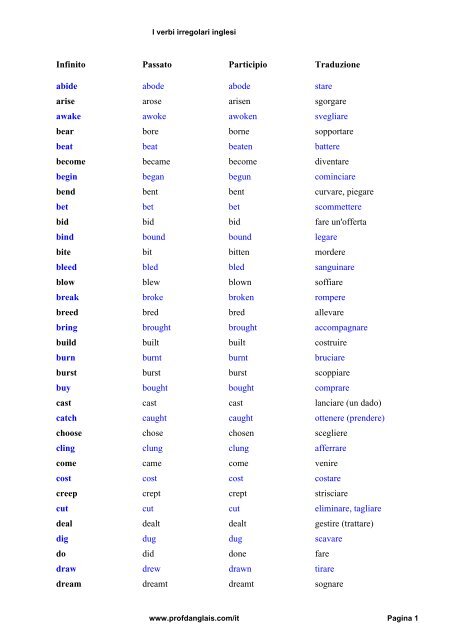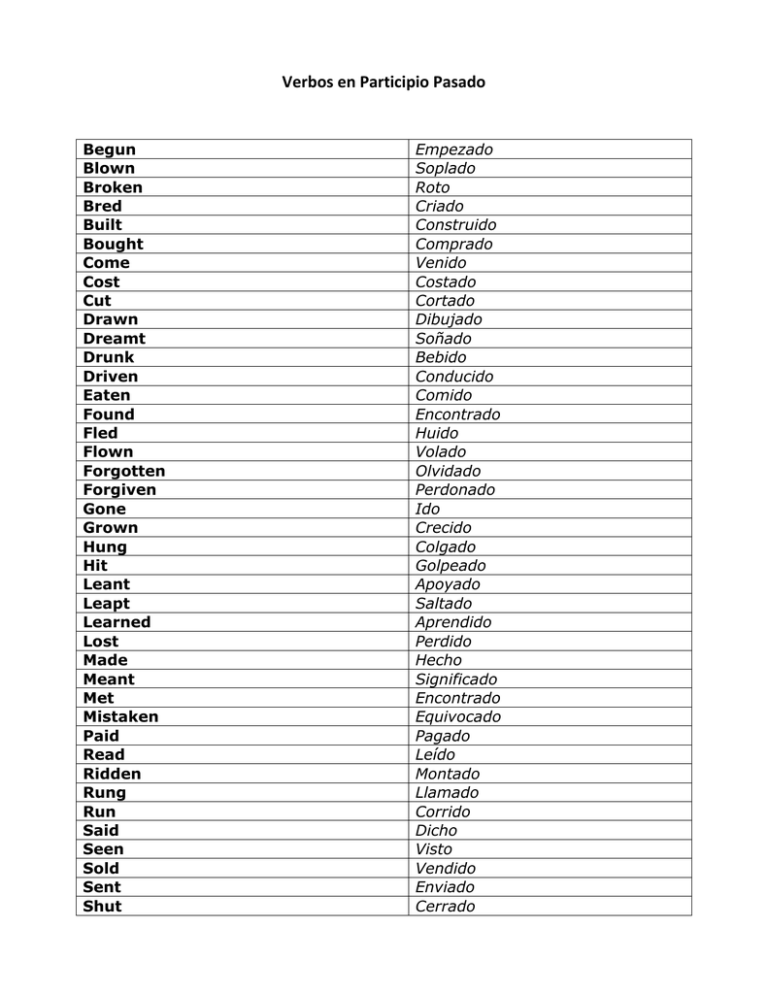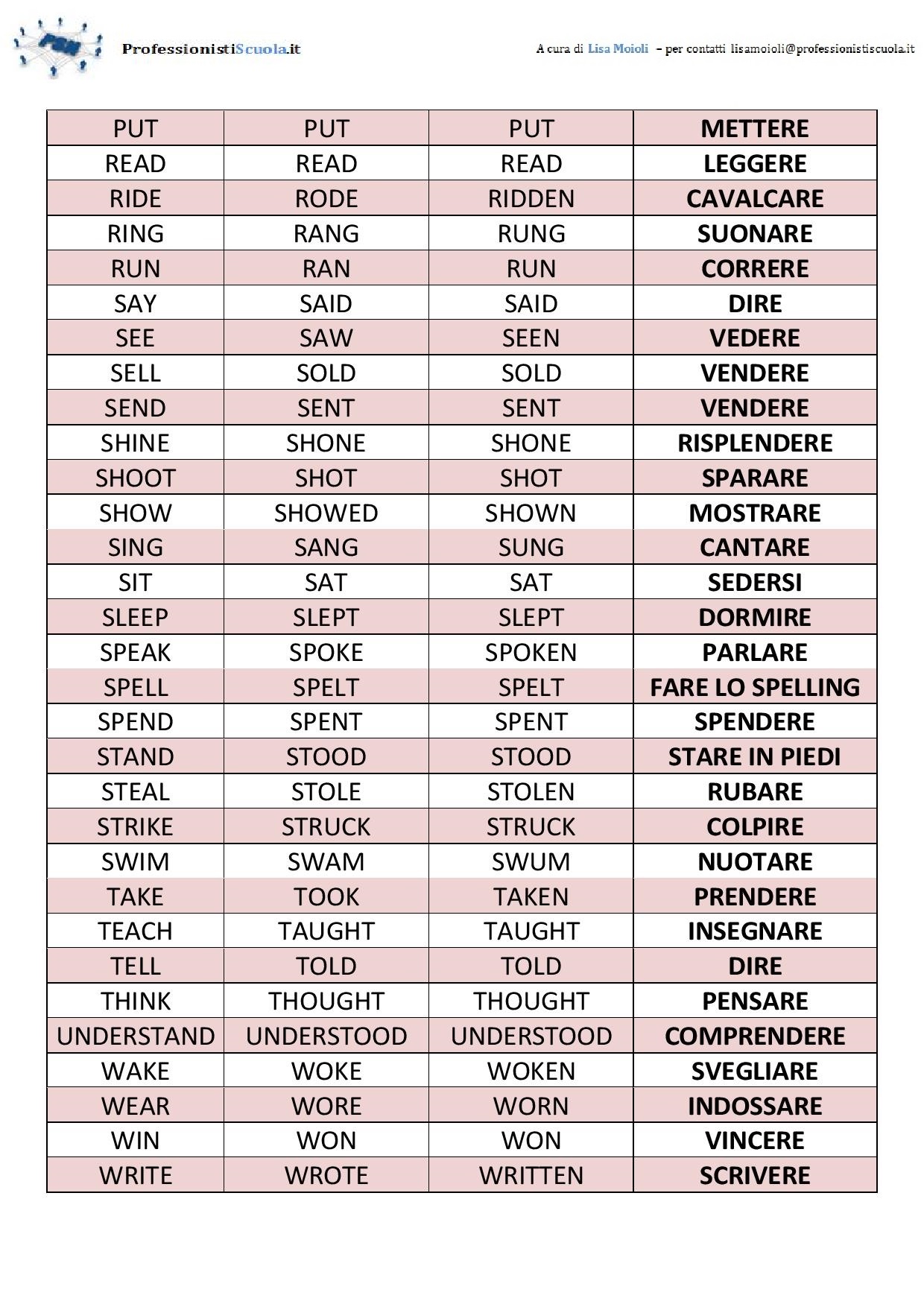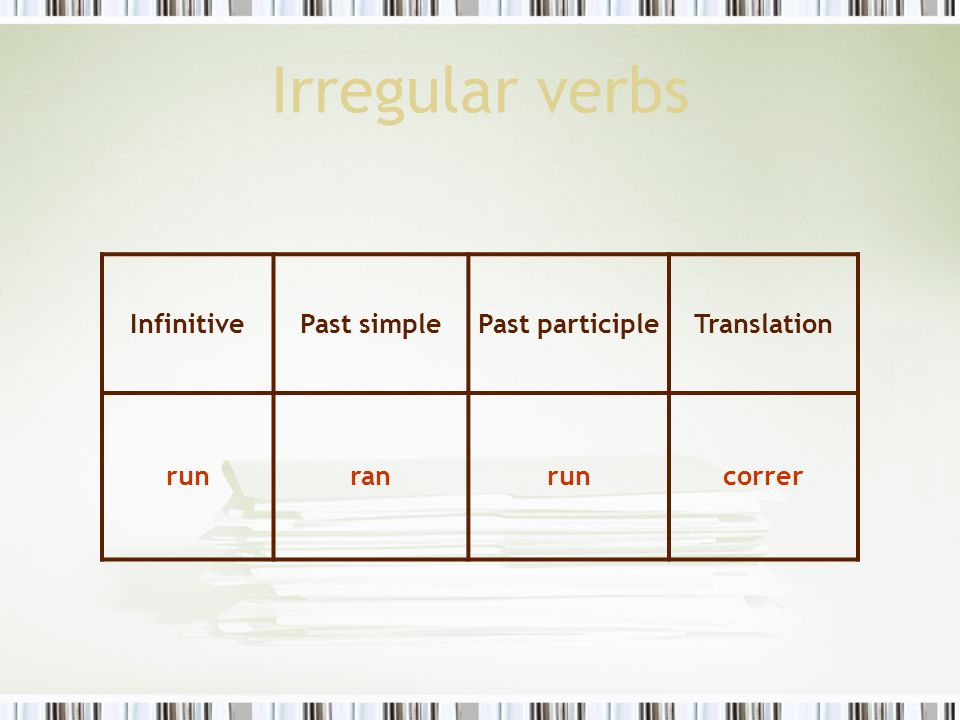
Conjugación Run 🔸 Verbo inglés en todos los tiempos y formas | Conjugar en pasado, presente y futuro

British School FVG - Present Perfect Continuous: è composto da due elementi: il present perfect del verbo to be (have/has been) e il participio presente del verbo principale (forma base + ing).

BE (Am, Is, Are) Do / Does Go (Es) Have / Has Make (S) : Infinitive Past Simple Past Participle Translation | PDF | Language Mechanics | Morphology
















